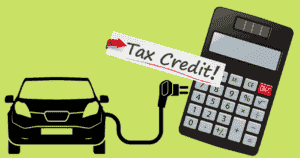The revamped EV tax credit scheme made by the US Treasury makes more US-built models eligible for subsidies of up to $7,500.

According to Global Fleet, under the previous rules, some popular EVs such as the Cadillac Lyriq and the seven-seater version of the Tesla Model Y were not eligible due to car makers’ different vehicle classifications. However, the Treasury has now revised the rules under the revamped EV tax credit scheme to align with Environmental Protection Agency fuel economy labeling standards, widening the scope of approved EVs. The incentives will be retroactively available from January 2023 and will remain in effect until December 2032.
Based on the revamped EV tax credit scheme, the new rules require electrified vehicles to be manufactured in the US or countries under a free trade agreement and for the parts for the battery pack to be partially locally sourced. The buyer’s income cap does not count for leasing, and the credit is only available for retail prices that fall under the following limits: $50,000 for crossovers and $80,000 for SUVs, vans, and trucks.
READ ALSO: Act Fast: $7,000 EV Tax Credits Set To Become More Restrictive in March
One potential loophole for leasing could see dealers receive the incentive rather than end-users, with no obligation to pass on the discount. The revamped EV tax credit scheme also allows second-hand EVs to be eligible for a $4,000 incentive, subject to a $25,000 price cap.
ELIGIBLE BRANDS
Foreign brands, such as the Volkswagen ID.4 and the plug-in hybrid versions of the Audi Q5, BMW 3 Series and X5, and Volvo S60, are eligible for the revamped EV tax credit scheme if they are manufactured in the US or countries under a free trade agreement. The IRS is awaiting a list of eligible models from Jaguar-Land Rover, Polestar, Mercedes-Benz, Porsche, Toyota, Kia, and Hyundai.
In March 2023, the revamped EV tax credit scheme will be revised again, with battery requirements likely to be the focus. Cell packs containing foreign materials will be expelled from the incentives as of 2024. As the majority of battery components are currently sourced in China, this may significantly impact the list of eligible models from next year. However, there may still be a loophole for leasing formulas.
The revamped EV tax credit scheme is part of President Joe Biden‘s Inflation Reduction Act, which aims to bring the EV and battery industry back to the US, including its R&D. The revised incentives are expected to encourage more consumers to purchase electric and plug-in hybrid vehicles and help the US move towards a cleaner, more sustainable transportation sector.
READ ALSO: $4,000 Tax Credits on a Used Electric Vehicle – Learn How To Claim





